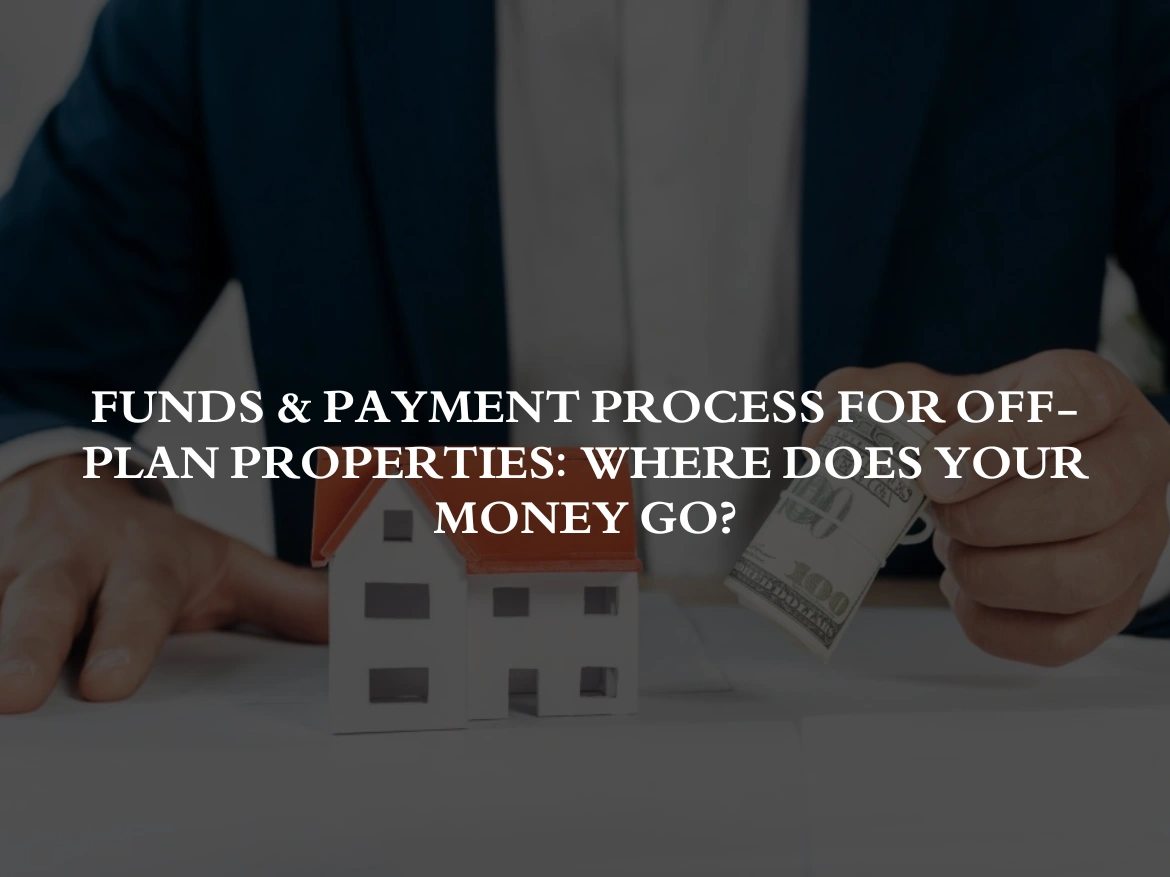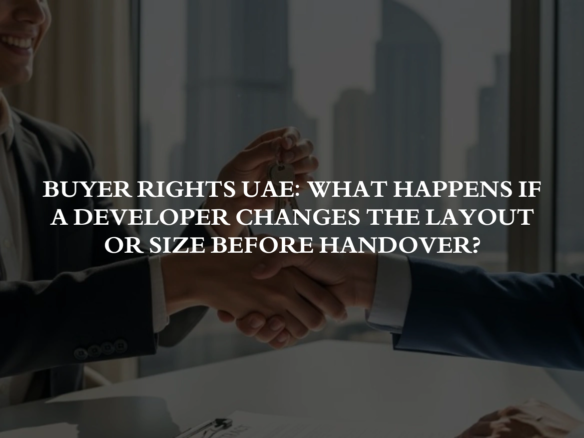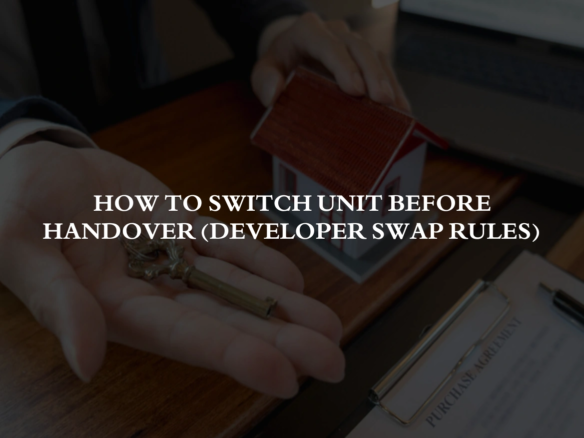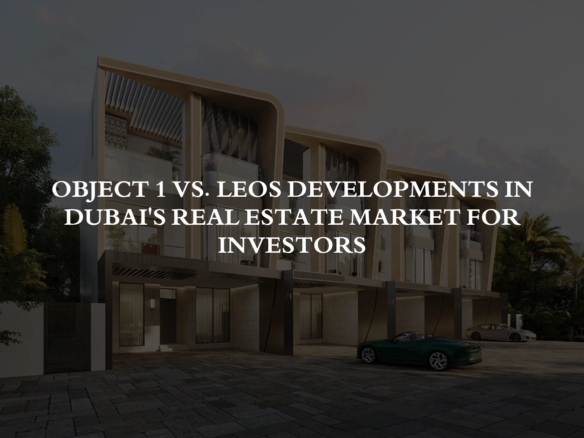Table of Contents
When people think about buying a home in Dubai, off-plan developments are often the first thing that comes to mind. These are homes that are sold while they are still being built, or even before they start being built. They are now one of the most popular options for both new and experienced investors. In general, off-plan projects have lower upfront costs, more flexible payment options over time, and the chance for the property to appreciate a lot by the time it is handed over. This is the appeal that is easy to get.
Still, even though the idea seems interesting, a lot of buyers are left wondering what really happens after they pay. Where is it going? Does the developer keep it for themselves? Am I using it safely? How much money does the government get? And maybe the most common worry of all: how can I be sure that my money will be safe until the building is done?
This is not a small thing to worry about. Dubai has one of the most open and regulated systems in the history of the world for managing money in the off-plan property market. Every dirham you pay is carefully recorded, tracked, and protected by laws that are meant to protect buyers. We’ll take a walk through the process of an off-plan transaction and find out exactly where your money ends up so that you can fully understand this.
The Beginning: Your Booking and First Payment
The first step in any trip is always to make a reservation. Buyers usually start the process by putting down a deposit that is between 5% and 15% of the property’s total value. People often think that this first payment goes directly to the developer, but that is not the case. In Dubai, the money is put into a special kind of bank account called an escrow account. The Dubai Land Department runs this account, which is a special checking account. Each project has its own escrow account, and developers are legally required to send all of the buyers’ money through that account.
This small but important thing changes everything. When you know the government is keeping an eye on your money, you don’t have to worry about whether or not it’s safe. The developer can’t get to it whenever they want. Your money isn’t just a blind payment; it’s the first step in a process that the system guarantees is under control.
The Function of Dubai Land Department Fees
In addition to the amount of the booking, every buyer is required to pay government fees. The fee that is charged by the Dubai Land Department, which is a fixed amount equal to four percent of the property value, is the most significant of these. In Dubai, this is not a cost that is hidden from view, nor is it a cost that is optional; rather, it is an essential component of every property purchase.
- To provide a better understanding, there is a direct allocation of AED 40,000 to DLD for a property that is valued at AED 1,000,000.
- For off-plan units, the Oqood registration fee, which is approximately 5,000 AED, may also be applicable.
- These payments are official charges levied by the government and are not earnings from the developer.
Therefore, your funds are split from the very beginning of the process: a portion of them is given to the government as DLD fees, and the remaining portion is protected by being deposited into the escrow account for the project.
Escrow Accounts: The Guardian of Your Funds
Escrow is not a new idea in the world of real estate, but Dubai has made it even better for this purpose. In other words, the escrow account is someone who looks after your money. This is where all of the payments that you make in installments during the building process are put. But developers can’t get into this account until they’ve reached certain construction milestones, and even then, only after those milestones have been checked. Developers are not allowed to take money out of this account without permission.
This is one example:
When the foundation was finished, some of the funds were made available.
- Extra funds are made available because the structure is being built.
- Because of finishing and interiors, there is more release.
- The balance has been paid off, and this is the last handover.
Because this system is based on milestones, you will always only be paid based on how much progress you have made. If the developer delays building the project, they will not be able to keep using your money.
Transparency Through Oqood
The Dubai Land Department runs Oqood, which is an Arabic word that means “contracts.” This is where all purchases that aren’t planned are logged. Oqood will keep a record of your contract and transaction as soon as you pay. This will give you clear proof that the property is legally linked to your name and that the government knows about it.
This gets rid of the chance that a developer will sell too many units or lie about who owns them, which is one of the most common worries buyers have. Every transaction is recorded, and the rights of every buyer are well documented when you use Oqood. It is also another way for the government to make sure that off-plan transactions are completely open and honest.
Handover and Final Settlement
When the building is done and the buyer is ready to take possession of the property, they are the ones who make the final payment. At this point, the escrow account should be almost empty because the developer will have been given money in stages as progress was checked. With the last payment, any balance that is still due is paid off.
Right after this, the buyer is given the property’s title deed, which is the proof of ownership that counts the most. The money has now reached its destination: some of it was given to the government as DLD fees, some was put in escrow until certain goals were met in the construction project, and the rest was only given to the developer when it was deemed appropriate.
Why This Process Matters
Every step of this process makes potential buyers and investors feel more sure about their decision.
- Your money is held in escrow for your safety as part of Dubai’s off-plan system.
- To get paid, you must show real progress on the construction.
- The DLD and RERA, which are both government agencies, keep an eye on everything.
This means that when you invest, you’re not taking a blind risk; you’re entering one of the most open property markets in the world.
Need a More information About It?
Our agents will help you explore premium options tailored to your lifestyle, location preferences, and investment goals.
Conclusion
The Dubai Land Department runs Oqood, which is an Arabic word that means “contracts.” This is where all purchases that aren’t planned are logged. Oqood will keep a record of your contract and transaction as soon as you pay. This will give you clear proof that the property is legally linked to your name and that the government knows about it.
This gets rid of the chance that a developer will sell too many units or lie about who owns them, which is one of the most common worries buyers have. Every transaction is recorded, and the rights of every buyer are well documented when you use Oqood. It is also another way for the government to make sure that off-plan transactions are completely open and honest.
Frequently Asked Questions (FAQ)
Your payments will be kept in an escrow account, which is managed by the Dubai Land Department. The developers can get access only when the construction has reached a certain milestone, verified by the authorities. This keeps your money safe during the whole process.
All buyers must pay a DLD registration fee of 4% of the property value. For example, if your property costs AED 1,000,000, you’ll pay AED 40,000 as a government fee. An Oqood registration fee of around AED 5,000 may apply for off-plan properties
A system called Oqood keeps track of all off-plan sales contracts. It is run by the DLD. As soon as you pay, your property is added to Oqood in your name. This will prevent developers from overselling units while still providing transparent confirmation of ownership.
Full ownership will be transferred at the time of handover. After the project is completed and your final payment is received, you will get the property title deed from the Dubai Land Department. This deed will be your legal proof of ownership.





Join The Discussion